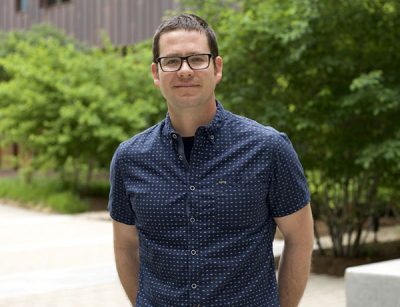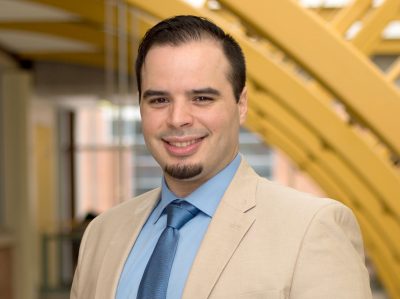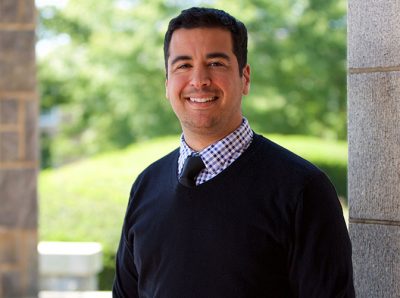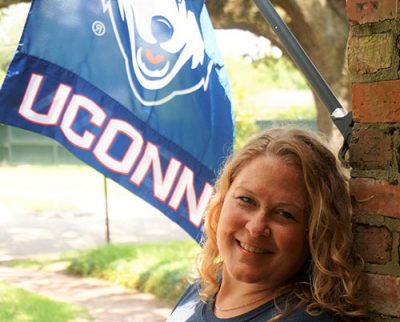“The GIS training I received was important and helpful in providing a foundational understanding and skill set, especially of ArcGIS. If you have an interest in GIS, I think you’ll find that earning this certificate is well worth the investment.” — Frank Griggs, Geographic Information Systems Online Graduate Certificate Student
 Having completed the Geographic Information Systems
Having completed the Geographic Information Systems
Online Graduate Certificate Program in 2015, Frank Griggs
now uses the skills he learned to further his PhD dissertation.
The subject of Frank Griggs’ PhD dissertation led him to discover the Geographic Information Systems (GIS) Online Graduate Certificate Program, offered through the University of Connecticut (UConn). Having completed the program in 2015, he now uses his new skills to conduct research in support of his dissertation. And looking ahead, he firmly believes that the investment in the GIS program will be well worth the effort when he starts looking for a job next spring.
You must really believe in the importance of taking the time to pursue a new skill, especially when you’re already waist-deep in a very intense PhD program in Political Science. But for Frank Griggs, taking the Geographic Information Systems Online Graduate Certification Program was essential. As he explains, “My dissertation project examines claims that climate change will influence social-political conflict and violence by focusing on disaster-induced human displacement as a mediating condition. My project’s subject matter is not uniformly distributed within and across countries. This makes the spatial analysis capabilities of GIS vital to evaluating whether or not such relationships exist.”
GIS kept popping up.
Frank notes that he first became interested in GIS four years ago. As he became increasingly involved in his climate change research, references to GIS techniques and methods kept popping up. “As I delved further into my subject matter, I began to see untested hypotheses that are suitable to spatial analysis. Since I was already here at UConn for my PhD, it was natural for me to add the certificate to my course workload,” notes Frank.
Frank chose a “blended” program, in which he took two courses on the Storrs, CT campus and two online courses, including one of his electives, GEOG 5520 – GIS Modeling of the Urban Environment. “The flexibility of the online courses enabled me to do coursework at times that were optimal for me, allowing me to take care of my other professional and personal responsibilities more easily,” he notes.
A solid foundation in ArcGIS.
So, was Frank able to gain the training he needed in GIS by getting the certificate? Absolutely, he says. “The GIS training I received was important and helpful in providing a foundational understanding and skill set, especially of ArcGIS. Since earning the certificate, I’ve been able to undertake research for my dissertation that uses GIS spatial analysis. In addition, I still use the assigned textbook, which provides practical, clear information and corresponding examples.”
Maybe academia, maybe private industry.
What’s next on the horizon? Frank anticipates that he will complete his PhD program in the spring of 2018, after which he plans to seek a faculty position in a college setting, potentially even as a GIS instructor. But, says Frank, “If I can’t find just the right job in academia, I know from other students who have earned the UConn GIS certificate, my GIS training could lead to a lucrative position in private industry.”
In conclusion, Frank says, “I appreciate the course instructors for being available and gracious about answering my questions.” Frank also felt very supported by Rich Mrozinski, UConn’s GIS Instructor/Lab Manager and GIS Certificate Program Coordinator, and Dr. Chaunrong Zhang, UConn Geography faculty member/GIS Instructor. As Frank says: “I sure got my money’s worth with all the visits I made to Rich and Dr. Zhang’s office hours. I am grateful to them for their time and guidance. If you have an interest in GIS, I think you’ll find that earning this certificate will be well worth the investment. “


